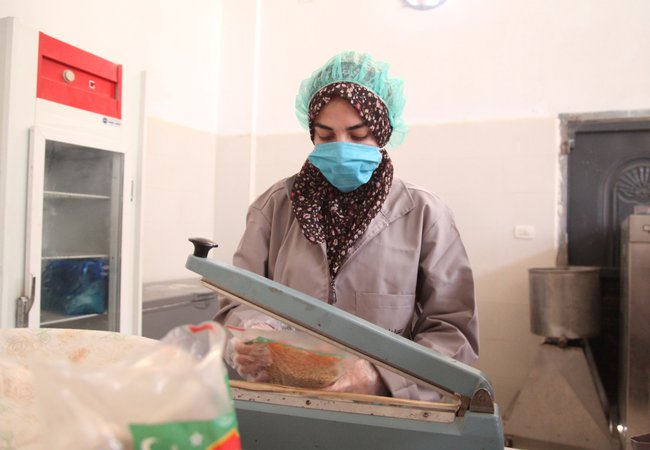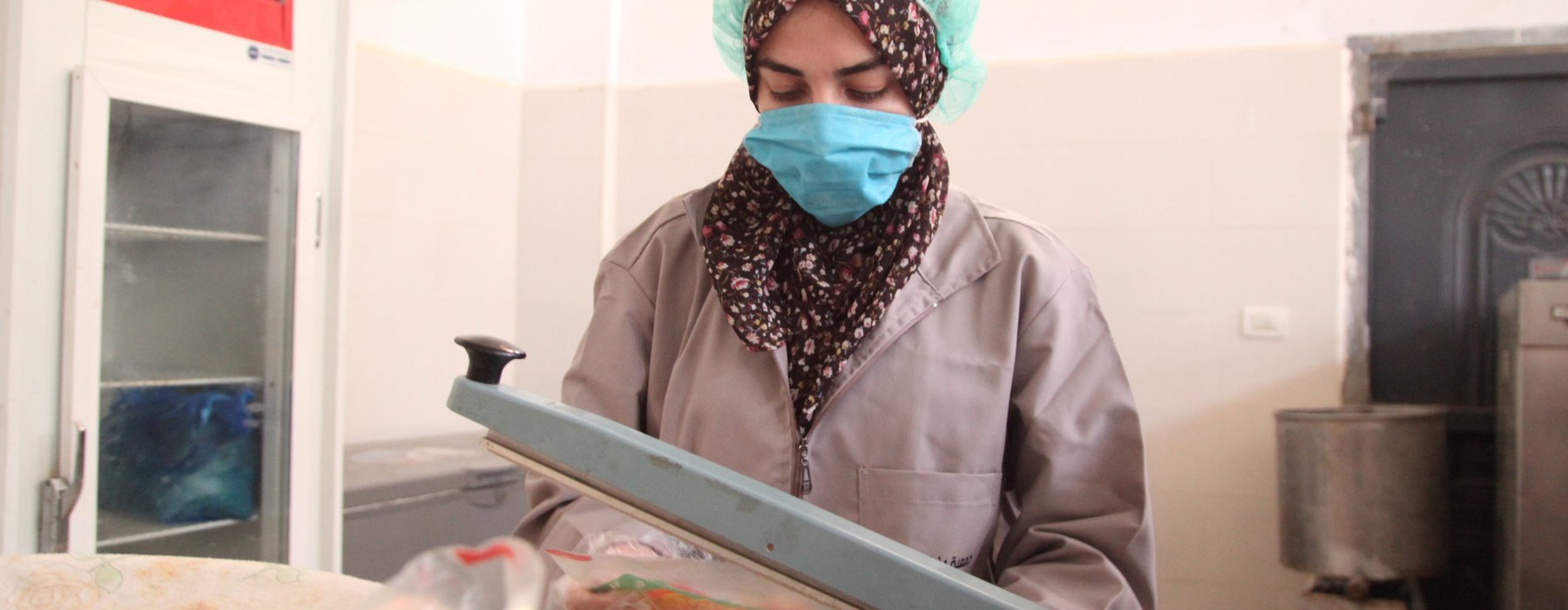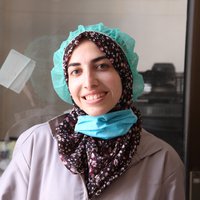I hope the world will survive this pandemic.”
Shatha in Gaza
Shatha in Gaza and the impact of the pandemic on women
Shatha works packing Maftoul (a traditional Palestinian food) at a cooperative in northern Gaza. When the pandemic hit her work was paused.
My mother died, and then my father got married and got busy with his new family. I had to work to support myself and my brother.
Rehaf Batniji / Oxfam
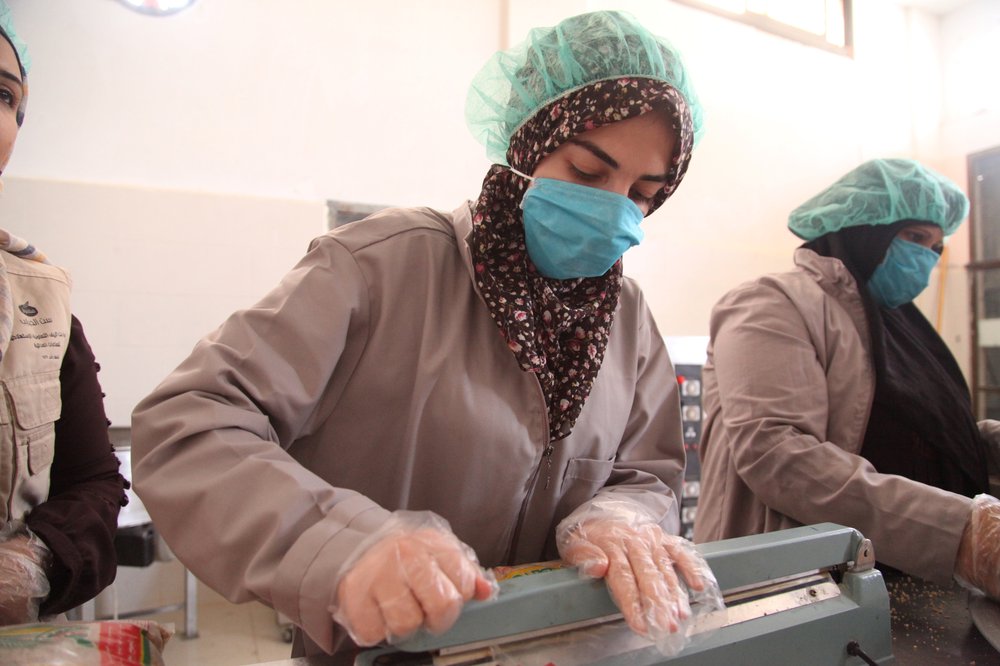
For nearly five months our work was halted because of the fear of coronavirus. Many working women at the cooperative lost their work.
Rehaf Batniji / Oxfam
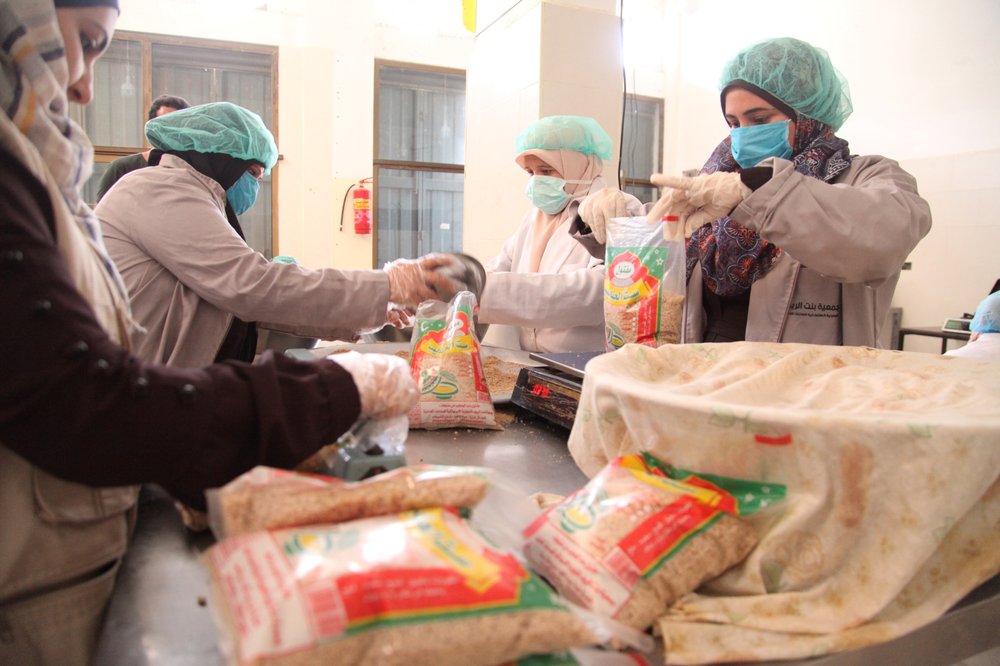
After the ease of restrictions, Oxfam supported us to be able to earn income again.
Rehaf Batniji/ Oxfam
Employee support
Oxfam and Start Fund supported the workers at the cooperative by covering their wages for 20 days. Helping them to get back to work after nearly five months, following the easing of the coronavirus lockdown.
I hope the world will survive this pandemic very soon. I hope the economic situation will improve in Gaza. I hope to build up my career as an interpreter.
Rehaf Batniji / Oxfam
I study English literature at the university, I work at the cooperative in packaging and do administrative tasks. This job allows me to cover the tuition fees for the university semesters.”
Shatha in Gaza
The threat of the virus globally is still there. If the virus goes out of control in Gaza, I am afraid to catch it and spread it around. We do not have advanced lifestyle systems where you can have delivery services or online services, we must go in person to do everyday tasks and activities.
Rehaf Batniji / Oxfam
Hygiene kits
Oxfam deliver hygiene kits to the cooperative in northern Gaza as part of the coronavirus response.
I hope the international community is paying more attention to our conflict. The Palestinian people’s rights become hopes. We are depending on humanitarian aid, while we can be one of the most active and productive communities.
